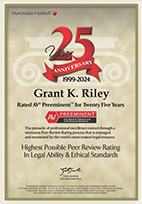Is it possible to contract Legionnaires’ disease from hot tubs? In places like Vegas and Los Angeles, where hot tubs are ubiquitous in casinos, resorts, hotels, and cruise ships, this question is particularly relevant. People love hot tubs as a means for relaxing, soothing muscle aches, and just because they’re symbols of luxury.
However, using a hot tub may come with a price. If the entire water system is not properly maintained and cleaned, someone could contract Legionnaires’ disease from the hot tub.
If you or someone you know has contracted Legionnaires’ disease from a hot tub, you may be entitled to compensation. Contact Legionnaires’ disease lawyers at Riley | Ersoff by calling (888) 658-9695 for a free consultation.
What Is Legionnaires’ Disease?
Legionnaires’ disease is a potentially fatal condition caused by overexposure to the Legionella bacteria.
How Does Someone Contract Legionnaires’ Disease?
Legionella bacteria occur naturally in freshwater sources such as lakes and rivers. In smaller quantities, they are generally harmless. However, they can also occur in pipes and hot water systems that are not properly maintained and cleaned.
Overexposure to Legionella causes pneumonia-like lung infection. It can happen when people drink contaminated water or inhale contaminated water vapors.
What Happens to People with Legionnaires’ Disease?
Legionnaires’ disease can be very serious and has the potential to cause great harm. Possible issues resulting from the disease include:
- Respiratory system failure,
- Kidney failure,
- Lung damage,
- Cardiac infections,
- Permanent organ damage, and
- Death.
The most adversely affected people include smokers, chronic illness sufferers, the immunocompromised, and the elderly.
How Do I Know If I Have Legionnaires’ Disease?
Someone infected with Legionnaires’ disease probably has symptoms similar to pneumonia:
- Coughing,
- Shortness of breath,
- Fever,
- Muscle aches,
- Headaches, and
- Nausea.
If you are experiencing these symptoms, even if you don’t think you could have Legionnaires’ disease, you should see your doctor immediately. Symptoms can take up to 14 days to develop, and the disease is fatal in 10% of cases.
How Does Someone Contract Legionnaires’ Disease from a Hot Tub?
Overgrowth of Legionella in hot tubs happens when the system is not properly maintained. The bacteria thrive in warm water. Hot tubs usually operate between 96 and 104 degrees Fahrenheit.
When people use spas, they inevitably add contaminants to the water—such as skin cells, body oils, and dirt—that encourage bacterial growth. Because of the heat, hot tubs generate a lot of steam and mist. When someone inhales the contaminated vapor, the bacteria can cause an infection in their lungs.
Chlorine is a commonly used disinfectant in hot tubs. However, at such high temperatures, chlorine breaks down and is less effective. Proper maintenance requires vigilance, routine testing, regular filter cleaning, and chemical treatment to prevent the overgrowth of Legionella in hot tubs.
Skipping these steps can lead to outbreaks of Legionnaires’ disease from hot tubs.
What Are My Legal Options If I Contracted Legionnaires’ Disease from a Hot Tub?
If you contracted Legionnaires’ disease after you used a hot tub, it is most likely due to someone else’s negligence.
In this case, the property owner owed you a duty of care to ensure their water systems were regularly maintained. Because they did not uphold that duty of care, you could be entitled to compensation because their negligence harmed you.
You should not have to pay out of pocket for medical bills and other expenses that happened because someone else was careless.
How Do I File a Legionnaires’ Disease Lawsuit?
Hot tub-related Legionnaires’ disease claims are personal injury cases. Whether you settle or go to trial, there is a lot of work involved in these kinds of cases.
Your best recourse is to hire an experienced personal injury attorney as soon as possible. You only have two years from the date that you discovered or should have discovered, your injury to file suit.
What’s the average settlement for a Legionnaires’ disease lawsuit?
There is no average settlement for a Legionnaires’ disease suit. Factors that can affect your case’s value include:
- The extent of your injuries;
- Past and future medical bills;
- Your age;
- Your occupation; and
- Past and future wages lost due to the illness.
The amount of damages is unique to every case and depends on the circumstances.
How do you prove a Legionnaires’ disease claim?
To prove your Legionnaires’ disease claim, your attorney must show that the person or entity you are suing acted negligently or failed to act responsibly in maintaining their hot tub.
You prove this by showing evidence that:
- You have a confirmed Legionnaires’ disease diagnosis,
- You used the hot tub and contracted the disease after doing so,
- The company did not properly maintain the water source, and
- You suffered damages as a result.
Negligent parties can include property owners, maintenance companies, property managers, plumbers, and others. After investigating the facts of your case, your attorney will determine whom to sue.
What If My Loved One Died Because of Legionnaires’ Disease?
Families whose loved ones died from getting Legionnaires’ disease from a hot tub can bring a wrongful death lawsuit. Possible compensation for wrongful death claims includes economic damages (for example, medical bills and funeral costs) and non-economic damages (such as loss of consortium, pain and suffering, and mental anguish).
Again, the value of your potential compensation is based on the circumstances and can be affected by multiple factors.
Do I Really Need to Hire an Attorney for My Legionnaires’ Disease Lawsuit?
A Legionnaires’ disease lawyer has the knowledge and resources to help you create a successful lawsuit. They are familiar with the court processes and the steps necessary to bring your claim. Creating a successful case could involve multiple steps, including:
- Requesting and obtaining health department reports and reports from other government agencies;
- Investigating the defendant’s property, water systems, policies, and staff;
- Obtaining legal documents and business documents from the defendant; and
- Hiring experts and interviewing witnesses for testimony.
Your primary concern should be healing. But after taking care of your immediate physical healing, you should maintain all medical records and keep track of all related costs for evidence. You’ve got more than enough to think about. Don’t sell yourself short by pursuing a claim without legal experience.
Contact Riley | Ersoff LLP & Shakhnis for Your Legionnaires’ Disease Lawsuit
Riley | Ersoff LLP specializes in claims for damages resulting from property owners’ negligence. We are seasoned attorneys with years of experience handling successful lawsuits for Legionnaires’ disease, lead poisoning, carbon monoxide poisoning, and others.
Because we narrow our practice exclusively to these cases, we have compiled a record of success in helping people get the compensation they deserve when injured due to dangerous property conditions. You can view some of our results on our website.
If you contracted Legionnaires’ disease from a hot tub, contact us today to set up a consultation for your Legionnaires’ disease lawsuit.
The post Is It Possible to Contract Legionnaires’ Disease from Hot Tubs? appeared first on Riley | Ersoff LLP.

















